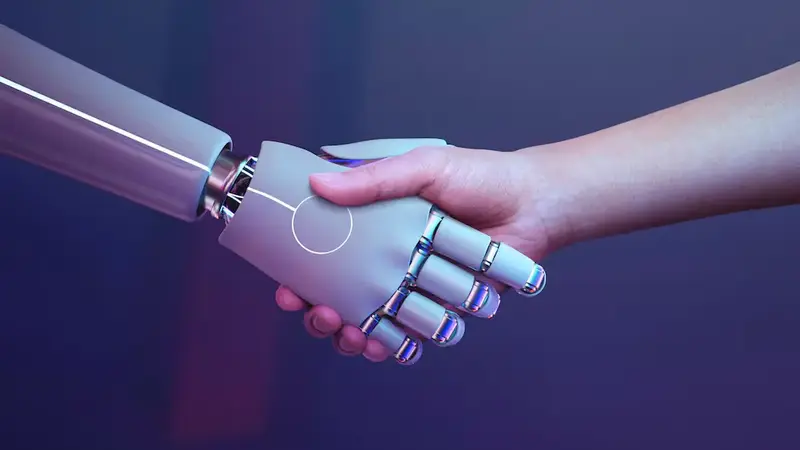The way we find and consume information in the digital age is transforming rapidly. Gone are the days when searches were limited to keystrokes and text queries. We’re entering an era where emerging technologies redefine how we discover information.
This article explores this new landscape, providing insights to help tech enthusiasts understand and lead in this information revolution.
The Evolution of Search
Search engines like Google have dominated internet browsing for years, but the way we find information is rapidly evolving. The traditional model based on keywords and static pages is being overtaken by dynamic, AI-powered, and machine-learning methods.
For users and tech enthusiasts, this means a shift towards more personalized, immediate, and visually driven search experiences. We’ll explore how these changes are transforming not just search methods, but also content creation and consumption.
AI at the Helm of Discovery
Artificial intelligence is at the forefront of the new wave of information discovery. By utilizing vast datasets, AI models can predict and serve up content that is likely to be of interest to a user before they even type a query. This personalized approach to information delivery marks a significant departure from the ‘one-size-fits-all’ search results of the past.
Predictive and Contextual Discovery
Artificial intelligence, particularly in the form of machine learning, makes it possible to predict what people are likely to be looking for based on their browsing history, location, and other contextual information. This predictive model is the new frontier, offering users content they didn’t know they needed but are likely to find valuable.
Personal Virtual Assistants
The integration of virtual AI assistants into everyday life, as exemplified by the widespread use of Siri, Alexa, and Google Assistant, signifies a more ‘human’ interaction with technology. These AI companions not only understand natural language but also can anticipate our needs and present information conversationally, dramatically reshaping the interactive nature of information retrieval.
Beyond the Keyboard: The Rise of Voice and Visual Search
Text-based search is giving way to more natural forms of human communication—voice and visuals.
The Voice-First Revolution
The convenience of speaking a query versus typing it is unparalleled. The rise of voice-activated devices like smart speakers and the integration of voice search in mobile and desktop browsing is shifting the paradigm of search. How does this affect information discovery? In more conversational interactions, the specifics of language—slang, dialect, or the way we pose questions—are better understood, bringing about more relevant results.
Visuals Tell a Story
The adage ‘a picture is worth a thousand words’ has never been truer when it comes to information discovery. Visual search technologies use images to find related content, supporting users who can’t quite describe what they want in words but can recognize it when they see it. Whether it’s identifying a piece of clothing or a rare plant, visual search is bridging the gap between the physical and digital worlds, enabling a more seamless information retrieval experience.
The Future of Search Tools
What does the future hold for information discovery? The role of search tools is set to expand in directions that we can only speculate on, but several trends and technologies provide a glimpse into the possible future.
Blockchain for Privacy-First Discovery
The integration of blockchain technology could usher in an era where users have complete control over their data and who has access to it. This privacy-first approach could revolutionize how personalization works by allowing individuals to own and selectively share their data, thereby enabling more fine-tuned and accurate content recommendations.
The Semantic Web and Contextual Understanding
With advancements in the semantic web, search engines will not only understand the meaning of words but also the context in which they are used, leading to the development of cognitive search capabilities. This contextual understanding could lead to search tools that answer questions more precisely and access information across a variety of sources in a more cohesive, structured manner.
Mixed Reality Search Experiences
Imagine a world where you can search and interact with digital information in the real world using augmented reality. Mixed reality could let users ‘see’ information attached to real-world objects, places, and people, merging digital and physical realms and redefining ‘searchable.’
Practical Applications and Implications for Tech Enthusiasts
For those in tech, these shifts in how we find information have major impacts. Content creators and marketers need to adjust their strategies for new search methods, and developers should embrace these new technologies to build the tools and experiences shaping the future of the internet.
Creating Content for the New Era
In an AI-driven world, standout content needs deep audience insights and a nuanced understanding of search algorithms. Content must be informative, engaging, and optimized for modern search trends, including voice, visual, and personalized search.
Navigating the SEA (Search Engine of the Ages)
Tech enthusiasts and developers must become adept at working with these new search engine algorithms (SEA) to ensure their applications and websites are not just discoverable but are prioritized in the new search ecosystems. This means understanding the sea change in factors that these algorithms prioritize, such as user interaction and relevance over simple keyword matching.
Conclusion
The future of information discovery is thrilling, with technology constantly pushing our limits and reshaping our digital lives. For tech enthusiasts, these changes open doors to innovation, growth, and new ways to interact online. Traditional search tools are just the starting point.
As we progress, the lines between the physical and digital, personal and universal, and public and private will increasingly blur. By embracing these new technologies, we can do more than just keep up with information discovery; we can drive and shape its future.
